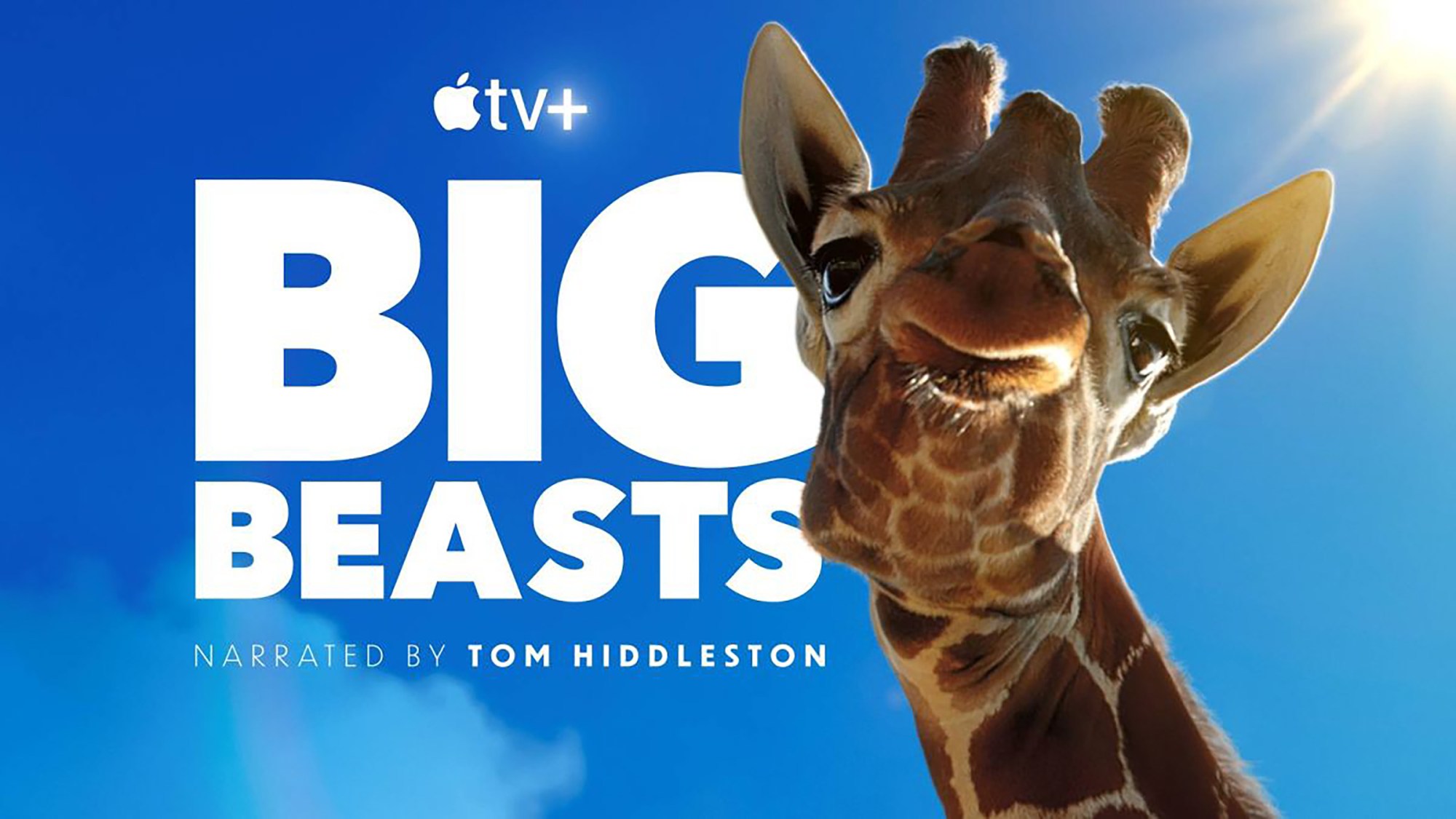
- Film
Docs: “Big Beasts” – An Epic Journey
Arriving just in time to celebrate Earth Day comes the 10-part Apple documentary series, Big Beasts, narrated by English actor Tom Hiddleston. Big Beasts filmed over four years, takes audiences on an epic journey around the globe, from freezing poles to tropical rainforests to meet nature’s most captivating giants. Each episode follows a diverse range of massive species including the grey whale, elephant seal, giant otter, gorilla, hippopotamus, brown bear, ostrich, orangutan, tiger, giant octopus, and polar bear as we discover being big isn’t easy, and the larger the creature, the greater the challenges they face.
We recently spoke on Zoom to executive producer Tom Hugh-Jones and series producer, Bill Markham, with Plimsoll Productions.
How did you come up with the concept for the show?
Tom Hugh-Jones (THJ): I worked on another Apple series called Tiny World, where we thought it would be really fun to show people the miniature world of insects and bugs and as a follow-up, we thought ‘What happens if you turn that on its head and look at the lives of big creatures?’ I think everyone assumes that big creatures rule the world so it’s really easy, but there are some really interesting challenges, from having to eat more to traveling further to their fights being more epic. You’d expect it to be full of fighting and animals being majestic, but we wanted to make it quite human and have some fun with it.
What were some of the biggest challenges?
Bill Markham (BM): It turns out one of the biggest challenges is getting close to big creatures. Quite often, they’re quite elusive or quite dangerous so getting those perspectives, making them look giant, and trying to see the world from their eyes was quite a challenge.
How do you get so close to them?
BM: We filmed 84 shoots between November 2020 and July 2022 and one of the secrets of wildlife filming is that you work with local experts, whether they’re scientists who dedicated their lives to it or guides, and when you’re in the field with them, they’ll coach you and tell you how close you can get and how to get the best behavior where you need to be and all the rest of it.
What were some of the biggest surprises that came out of the footage you got?
BM: I think one of the biggest surprises was when we were in the field, waiting to capture these highly dramatic moments like fights but we realized as we put the film together, it was more about the observed character moments. People like to see high-octane moments but what really makes people relate to animals is those more human moments where you think, ‘Oh I do that with my kids’ so there was a lot of material that was more subtly observed little problems or daily issues animals must face because they’re big.
Give us some examples.
BM: Well, no one’s really thought about how a giraffe drinks. Everyone knows they’re tall and it helps them reach treetops to eat but when they have to bend over to drink, that can be quite a problem. It turns out they’ve got completely kind of redesigned elbows and knees in order to be able to bend legs that tall to be able to get down to the ground. We found out that some of them quite often pass out because their heads are so high up there and when they go down to drink, all that blood goes down and they fall over.
THJ: In the episode with the lowland gorillas, what’s great is they’re relatable because they are primates like us. And the Silverback dad is massive, which fits the bill, but his kids are quite small so they can actually do different things to dad and go up to the fruit in the top of the tree he can’t reach and start playing around so the fruits fall down. By the end of the episode, you see the intimate connection between Dad and the kids and how caring he is.
How was it working with Tom Hiddleston on the narration?
BM: We got Tom with the first line he had to read in the first episode – ‘it’s hard work being a dad.’ He and his partner had literally just had a baby about two months before and he was absolutely on board once he’d read that line. He’s an unbelievable actor, classically trained, and passionate about the natural world and animals. He wanted to understand all about the stories and would stop the voiceover quite often after reading and just say, ‘Can I just watch that again without talking over it,’ because he wanted to enjoy the scene.
How do you think Big Beasts help us understand our planet better?
THJ: The biggest animals on the planet are probably the biggest indicators of the health of our planet because in order for them to thrive, they need a whole ecosystem. Protect the big animals and that means protecting the worlds in which they have inhabited as well.
The series will debut on Friday, 21 April, with two new episodes premiering each week until Friday, 19 May.

